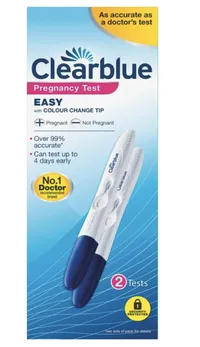Birth control pills recalled over claims they have reduced protection from pregnancy
Women urged to check their contraceptive pills and take action if they've had sex


Parenting advice, hot topics, best buys and family finance tips delivered straight to your inbox.
You are now subscribed
Your newsletter sign-up was successful
Millions of women in the US are being urged to check their birth control pills after two lots have been recalled because they may not work.
Many couples wonder 'how much does it cost to raise a child in 2023?' amid the rising cost of living while others ask 'how much does a baby cost?' when planning to start a family.
But whether you're not ready to start a family or don't want to have another baby just yet, female contraceptives are just one of the essential steps to preventing unwanted pregnancies.
But it's not just forgetting to take a pill or being sick while taking the pill that you have to worry about after this latest product recall news.
Any women who have taken either of these two lots of birth control will need to take action by monitoring the early signs of pregnancy, taking the morning-after pill, or doing a pregnancy test, after reports the pill is less effective and therefore exposes them to increasing their risk of pregnancy.
The recall comes after testing revealed a problem that might severely reduce how well they work - however, the company which has made the recall has advised people to keep taking them until they find a replacement pill or contraceptive rather than risk going without.
A Food and Drug Administration (FDA)-posted recall notice from Lupin Pharmaceuticals has removed two lots of Tydemy oral contraceptives - Drospirenone, Ethinyl Estradiol, and Levomefolate Calcium Tablets - from supplies after one set "tested low for ascorbic acid (an inactive ingredient) and high for a known impurity".
Parenting advice, hot topics, best buys and family finance tips delivered straight to your inbox.

Clearblue Easy Pregnancy Test was £8, now £5.74 | Amazon.co.uk
This pregnancy test is 99% accurate from the day you expect your period. Easy to read with + or - results in only two minutes. As accurate as a doctors urine test.
Explaining the problem, Lupin said, "If there were a significant reduction in the amount of inactive content (ascorbic acid), this could potentially impact the effectiveness of the product which could potentially result in unexpected pregnancy.”
Lot No. L200183 with an expiration of January 2024 was the lot tested. The other lot recalled is No. L201560 with an expiration of September 2024. Each lot includes both NDC Nos. 68180-904-71, one blister pack of 28 tablets, and 68180-904-73, three blister packs of 28 tablets each.
The recall notice reads, "Patients taking Tydemy are advised to continue taking their medication and immediately contact their pharmacist, physician, or medical provider for advice regarding an alternative treatment.”

What to do if birth control pill fails
If you think your birth control pill may have failed, you can use emergency contraceptives (also known as the morning after pill) to prevent pregnancy, or if you've had unprotected sex or if the condom broke or you missed one or more of your birth control pills. This type of emergency contraception is intended for a back up only and not as a primary method of birth control.
The Cleveland Clinic advises, "If you've missed three or more days or it has been longer than 48 hours since you took a pill, you are no longer protected against pregnancy. Consider emergency contraception if you've had unprotected sex in the last five days or if the pills were missed during the first week of the pack."
Meanwhile, anyone who has questions about the recall or would like to return them for a refund, can contact Inmar Rx Solutions Inc. at 866-480-8206, Monday through Friday, 9am to 5pm, Eastern time.
But if you have medical problems or any other medication, seek advice from a medical professional before contacting FDA via MedWatch Adverse Event page.
Other types of contraceptives you could try
- Birth control implant - an implantable device that is used for the purpose of birth control. It works by the timed release of hormones to hinder ovulation or sperm development. The copper acts as a natural spermicide within the uterus, or it may work using a non-hormonal physical blocking mechanism. But it doesn't protect against sexually transmitted infections (STIs).
- Contraceptive patch - This patch is applied to the skin and releases synthetic oestrogen and progestogen hormones to prevent pregnancy. As a birth control method they've been shown to be as just as effective as the combined oral contraceptive pill. But it doesn't protect against STIs.
- Progestin IUD - An intrauterine device that releases progestogenic hormonal agent such as levonorgestrel into the uterus. But it doesn't protect against STIs.
- NuvaRing - A type of hormonal insert that is placed in the vagina as birth control. The rings contain a plastic polymer matrix embedded with contraceptive drug.
- Diaphragm - A barrier method of birth control which is understood to be moderately affective with a one year failure rate of 12%. Placed over the cervix with spermicide before sex and is left in place for at least six hours after sex. It can be 88-94% effective.
- Vaginal ring - These are around two inches in diameter and are inserted into the vagina, it is removed after three weeks for a week to allow menstruation then a new ring can be inserted after seven days. These are 99.7% effective.
- Tubal ligation - A procedure for female sterilisation whereby the fallopian tubes are permanently blocked, clipped or removed. This stops the fertilisation and the implanting of an egg.
Seek advice or read up for more pregnancy advice and information or family news if you're unsure of anything.

Selina is a Senior Family Writer for GoodtoKnow and has more than 16 years years of experience. She specialises in royal family news, including the latest activities of Prince George, Charlotte, Louis, Archie and Lilibet. She also covers the latest government, health and charity advice for families. Selina graduated from the University of Sheffield in 2006 with a degree in Journalism, and gained her NCTJ and NCE qualifications. During her career, she’s also written for Woman, Woman's Own, Woman&Home, and Woman's Weekly as well as Heat magazine, Bang Showbiz - and the Scunthorpe Telegraph. When she's not covering family news, you can find her exploring new countryside walking routes, catching up with friends over good food, or making memories (including award-winning scarecrows!)
